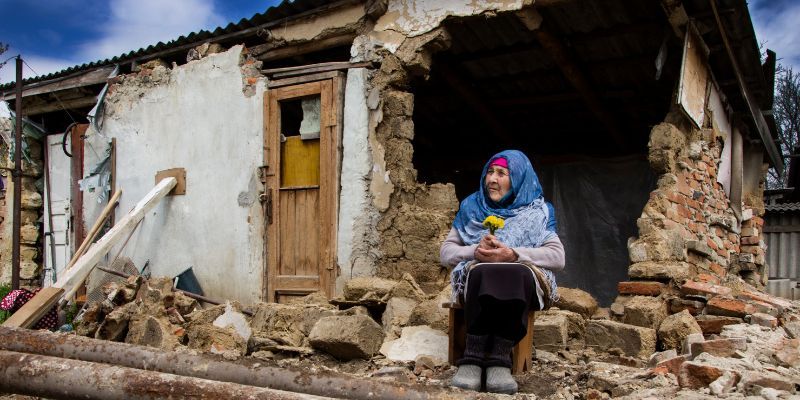
Ukrainian civilians who suffer traumatic injuries in the country’s conflict with Russia are the focus of new collaborative research by the University of Leeds and Bukovinian State Medical University.
Researchers from both institutions are seeking to explore ways to optimise care pathways for patients with lower limb trauma specifically focusing on major lower limb amputations. They will focus on the whole pathway from treating the injury in an emergency medical setting, to managing pain, short term rehabilitation and the longer term physical and psychological impact of losing a limb.
Led by Mr Patrick Coughlin, Consultant Vascular Surgeon in the University of Leeds’ School of Medicine and Leeds Teaching Hospitals’ NHS Trust’s Leeds Vascular Institute, the team aims to identify the barriers to patient care in Ukraine, and use research and clinical expertise established in Leeds to determine how to overcome them.
The surgeons and allied health care professionals in Ukraine are highly trained, but their skills are likely to be saturated.
Mr Coughlin said: “Working with academics from the Bukovinian State Medical University in Ukraine, we are aiming to look at the whole patient pathway, from how to manage the trauma in the acute setting at the start, to more long-term aspects such as managing pain, adapting the home, and enhancing physical and psychological support.
“The surgeons and allied health care professionals in hospitals in Ukraine are highly trained, but due to the high volume of very complex patients, their skills are likely to be saturated. We want to help with that.
“Within the Leeds Vascular Institute there is a distinct level of expertise in major trauma. We are trying to use this expertise in Ukraine to identify where knowledge gaps are, and to see if we can improve surgery and post operative care.”
Leeds experience to test new treatments
“Leeds is thriving in healthtech – we want to see if there is technology that we can develop at the university that would be useful in managing these patients with the aim of getting the injuried people back into everyday life as soon as possible. We hope to also be able to use our experience of research design at Leeds to test such technological interventions in well designed clinical trials in Ukraine.”
The project is part of a twinning scheme led by Universities UK International, which has partnered more than 100 UK institutions with a counterpart in Ukraine. The aim of the scheme, which has just marked its first anniversary, is to enable Ukrainian campuses to stay open, academics to continue vital teaching and research activities and students to continue their studies.
Due to its success, UK Research and Innovation (UKRI) allocated £5m in further investment at the end of 2022, £140,000 of which was awarded to the Leeds project, titled “Improving care of victims of lower limb trauma in Ukraine”.
- Phase 1 of the project will see researchers hold workshops with patients, carers and healthcare providers in Ukraine to establish what treatment currently looks like. From there the team will determine the barriers to optimal care and opportunities for improvement.
- Phase 2 will feature stakeholder sessions for UK based researchers to identify the technology and interventions that could help overcome these barriers.
Further projects could include developing and testing an education package for surgeons on managing injuries; developing low-cost prosthetics, and assessing the impact of the conflict on peacetime healthcare delivery.
Further information
- Email University of Leeds press officer Victoria Prest on v.prest@leeds.ac.uk with media enquiries.